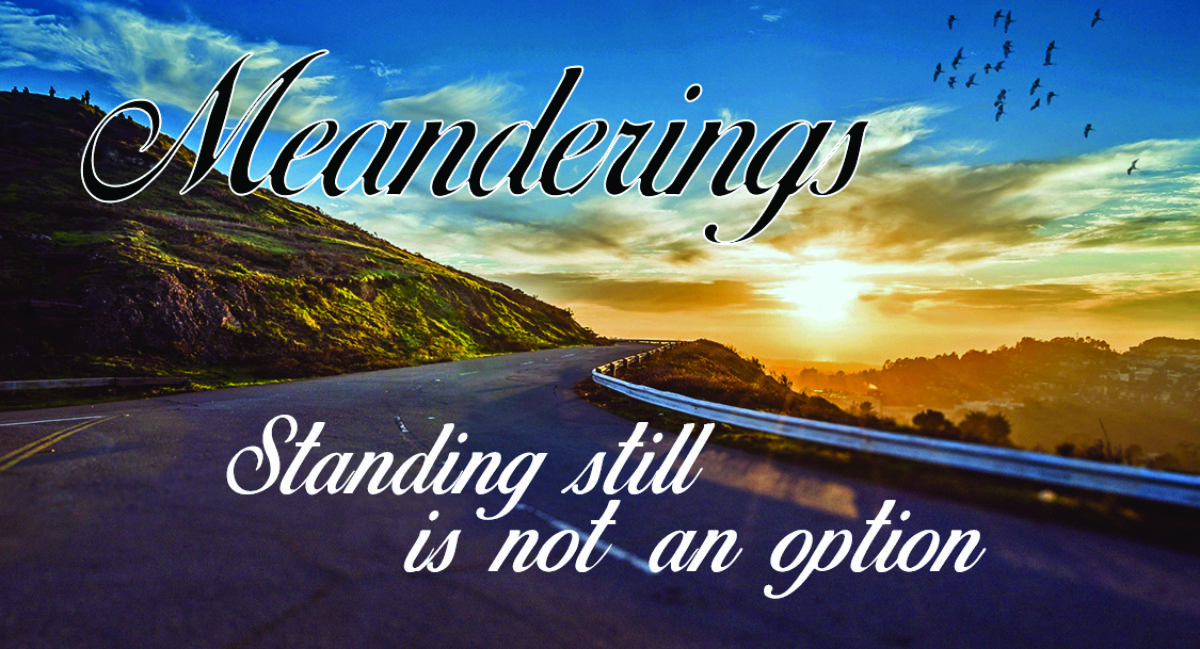After my Bert’s second bout of pneumonia a new greeting routine emerged. I had told a few people about how ill he was and all sympathized and asked me to greet my Bert with a hello, a hug and good wishes from them. I did.
As he recovered and I still got the greetings I would lean over and give him a kiss as I called the name of the person who sent the good wishes. He liked that though I am rather non-plussed at figuring out what he’s feeling as he gets those little pecks through a mask. I noticed too, that as soon as I entered he would lift his head, lips already pursed for the little kisses.
Thus was born the new routine. Now each day the first activity, whether he is my Bert or Alzheimer Bert, is to give him a little peck and call the name of the person who sent him the kiss, or hug, or greeting. Dear friends, you do not know this but if you should suddenly have ringing ears and you wonder who is calling your name, it could be me.
I usually begin with the usual suspects who send a daily greeting- family, close friends and neighbours, but I am the author of my own troubles as I decided he would get ten per day. I pluck names out of the air from among our many friends and although he will not remember the names from one day to the next, I will. For variety I call random names to go with each kiss.
My Bert loves this new routine. The last kiss is always from me after which he will ask: “Do I know them?”
“Of course you do. If they came in right now you would recognize them. They are our friends.” He gives a nod of satisfaction and smiles. Ah! the glory of therapeutic lying! It is one of the best tools in a caregiver’s tool box.
The new routine has also honed a hithertofore unknown talent of kissing through a mask. I notice that I am not the only caregiver that has now perfected this new talent. I can hardly suppress the giggles as these masked little kisses occur all around. What a talent.
Next is talking but only if my Bert wants to talk. If the day is a my Bert day then the conversation is happy, quite fast, certainly rambling and full of laughter. If it is an Alzheimer Bert day there may be silence, a nap, or awake with eyes closed but always holding hands.
It is then time to prepare for lunch or dinner depending on which meal I choose to lend a hand. First the garment protector aka the bib is put on. His drinks arrive first. There is milk, juice and water followed by soup at lunch, then the entrée consisting of protein, carbohydrate, vegetables and dessert.
It is no longer the new routine. My Bert has a good appetite and will rouse himself to have his meal. Although he can feed himself he will not do so when I am there. He drinks by himself but I must feed him the soup, entrée and dessert. We have that down to a fine art and it doesn’t matter if he’s animated or not.
There is one consistent action. After his meal whether it is my Bert or Alzheimer Bert he will usually doze off with a smile on his face, hands lightly clasped on his stomach. He’s content. I cannot ask for anything more.
I will not ask for anything more. I just want so much more. As I watch him doze I’ll recall that well know short version of the Serenity Prayer:
“God grant me the serenity
to accept the things I cannot change:
Courage to change the things I can;
And wisdom to know the difference.”
The Meander: I pray for wisdom but nefarious, insidious, devastating Alzheimer’s is wickedly wiser. The things I can change are becoming less and less each day so courage is on life support but acceptance is big and bold and serenely beautiful.
